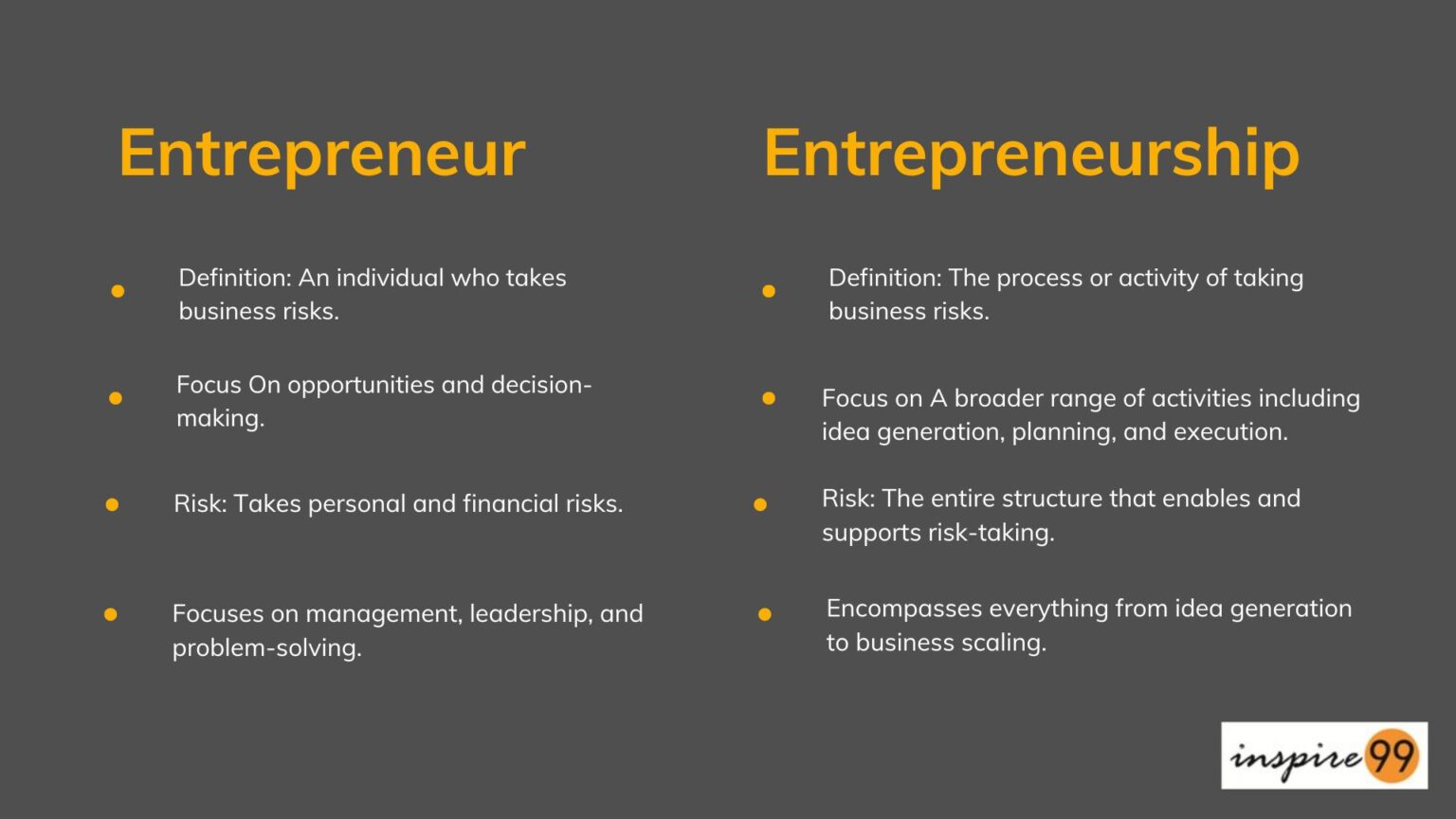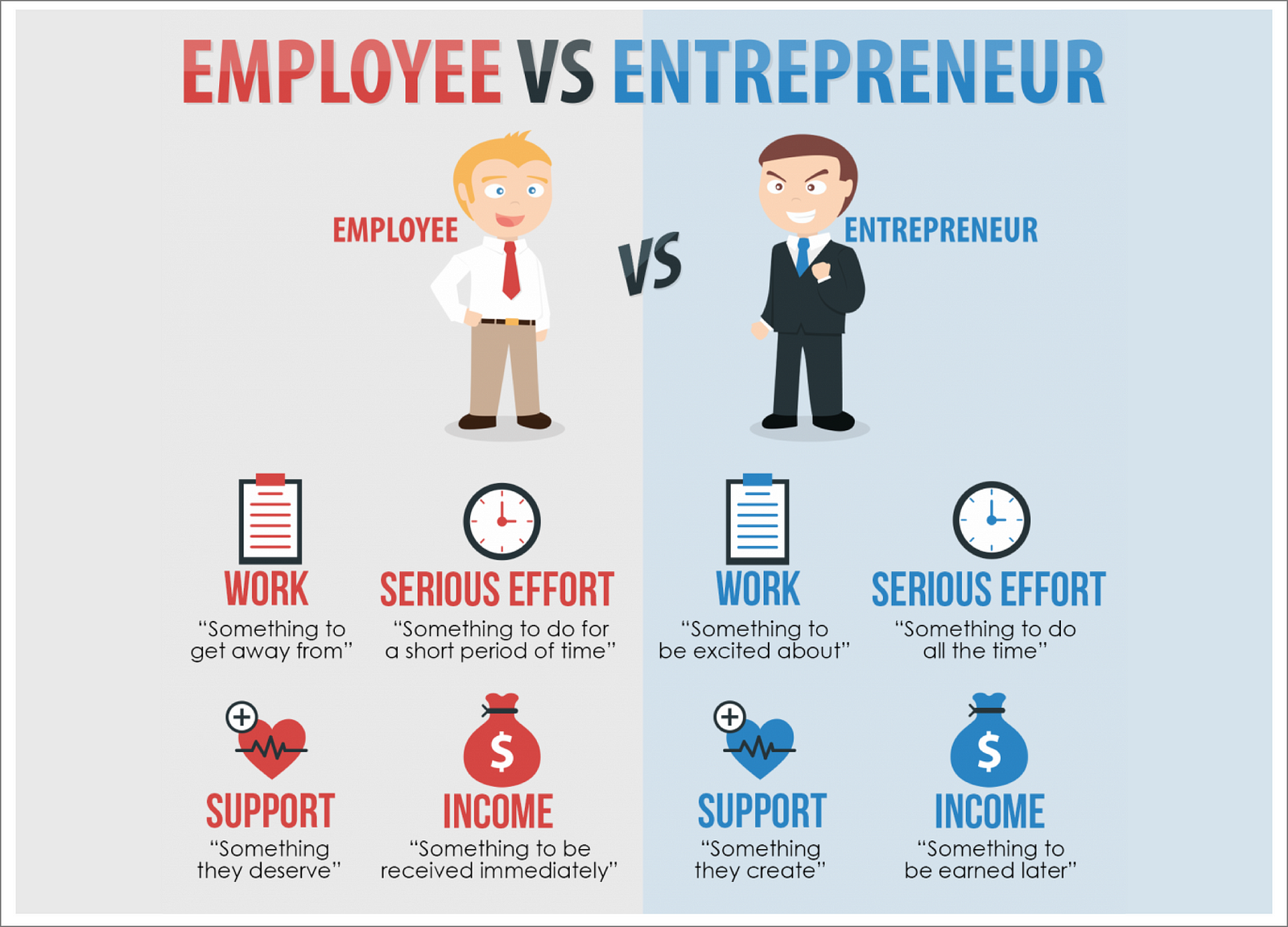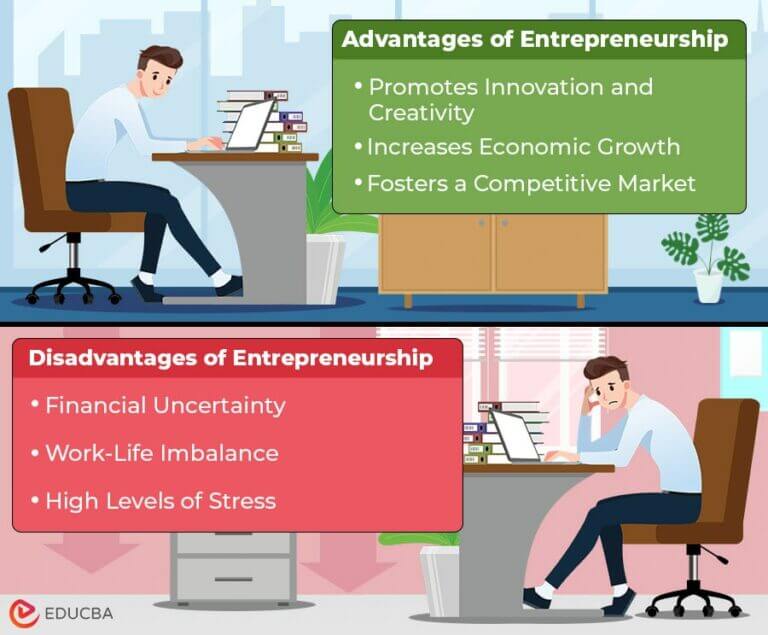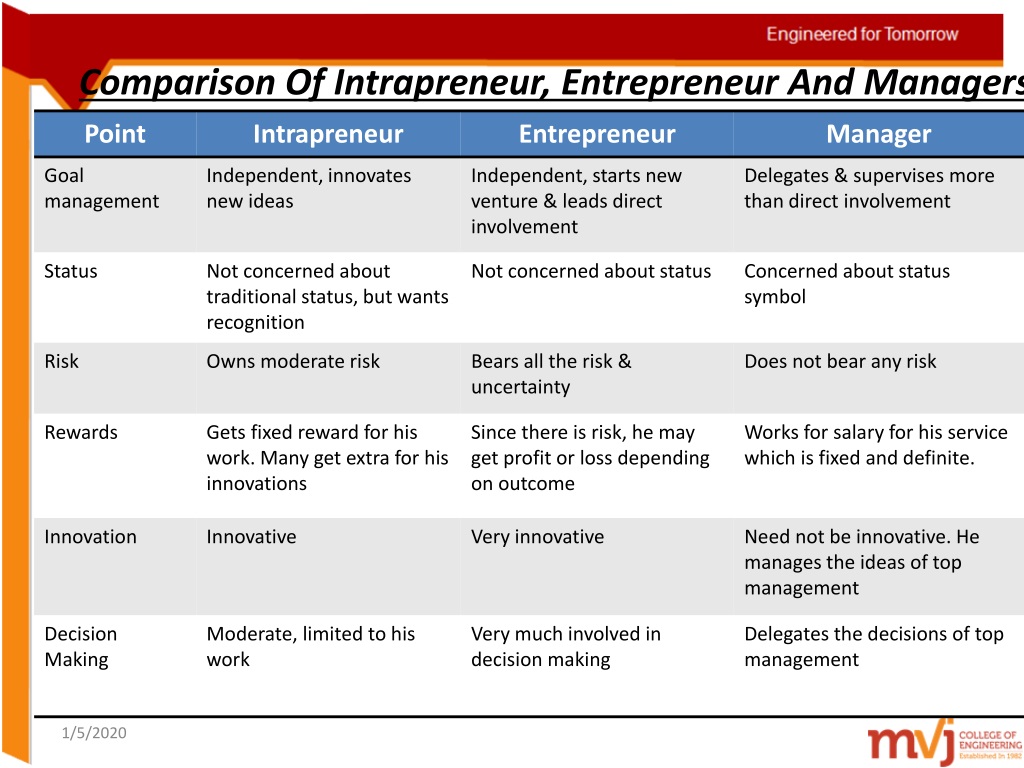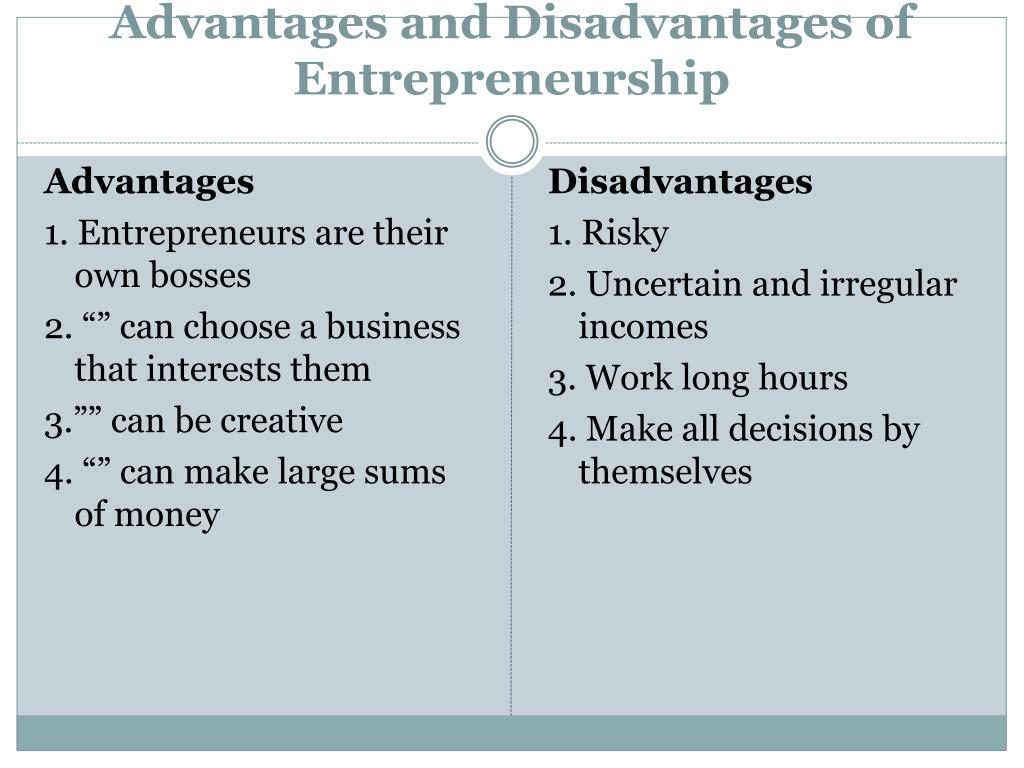Compare And Contrast Being An Entrepreneur And Working For Others

The career crossroads: entrepreneurship versus employment. Individuals face a pivotal decision, impacting not only their financial futures but also their daily lives.
This article cuts through the noise to provide a clear, concise comparison of the entrepreneurial path versus traditional employment. We'll explore the key differences – from risk and reward to control and stability – empowering you with the information needed to make an informed decision about your career trajectory.
The Entrepreneurial Rollercoaster
Entrepreneurship offers unparalleled autonomy. You're the captain, charting the course and making all the critical decisions. This level of control, however, comes hand-in-hand with immense responsibility.
Unlike a salaried position, income isn't guaranteed. In fact, entrepreneurs often forgo personal income initially, reinvesting profits back into the business. Success depends entirely on your dedication, resilience, and ability to adapt to the ever-changing market.
The rewards can be substantial. Building a successful company and seeing your vision come to fruition can be incredibly satisfying. Data shows that entrepreneurs report higher levels of job satisfaction, even with the increased stress.
Risk vs. Reward: A Constant Calculation
The financial risk is significantly higher for entrepreneurs. Startup costs, operating expenses, and market uncertainties all contribute to this. According to the Small Business Administration (SBA), around 20% of new businesses fail within the first year, and about half fail within five years.
However, the potential financial rewards are uncapped. Successful entrepreneurs can accumulate wealth far exceeding that of most salaried employees. Think of individuals like Elon Musk or Sara Blakely, who transformed innovative ideas into multi-billion dollar empires.
The Security of Employment
Working for someone else offers a degree of stability that entrepreneurship lacks. A regular paycheck, benefits packages (including health insurance and paid time off), and a structured work environment are standard perks.
The scope of your responsibilities is typically well-defined. You're part of a larger team, contributing to specific goals set by management. While this can provide a sense of security, it can also limit your autonomy and creative control.
Career advancement within a company usually follows a predictable path. Promotions, raises, and professional development opportunities are often tied to performance reviews and tenure.
Limited Upside, Predictable Growth
While the risk is lower, so is the potential reward. Your income is capped by your salary and the company's performance. Building significant wealth through employment alone is less common.
Bureau of Labor Statistics data indicate that average annual wage increases typically range from 3% to 5%. While this growth is consistent, it doesn't compare to the potential for exponential growth that entrepreneurship offers.
Control and Work-Life Balance: A Balancing Act
Entrepreneurs have complete control over their schedules and working conditions. They decide when, where, and how they work. This flexibility can be a major draw, allowing them to tailor their work lives to fit their personal needs.
However, this control often comes at a cost. Entrepreneurs frequently work long hours, sacrificing personal time to nurture their businesses. The lines between work and life can become blurred.
Employees, on the other hand, typically have more structured work hours. They can disconnect from work when they leave the office, leading to a better work-life balance. This distinction becomes increasingly important in today's demanding work environment.
The Verdict: Choosing Your Path
The choice between entrepreneurship and employment is a deeply personal one. There's no universally "better" option. It depends entirely on your risk tolerance, financial goals, and lifestyle preferences.
Aspiring entrepreneurs should carefully assess their skills, resources, and market opportunities. Those seeking stability and a predictable career path may find employment more suitable.
The next step is thorough self-reflection. Consider your strengths, weaknesses, and what truly motivates you. Research, network, and seek advice from experienced individuals who have walked both paths. Only then can you confidently choose the path that aligns with your vision for the future.




